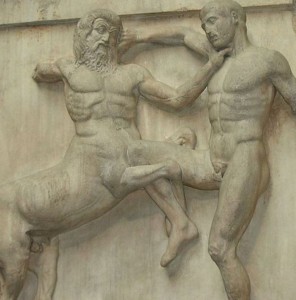The Elgin Marbles Debate
Perhaps the most famous debate about the rights of ownership and patrimony surround a series of carved marbles from the Parthenon at Athens, held since the nineteenth century in the British Museum in London. Over the past decades, the Greek government has made a series of requests for the return of these objects. These repatriation demands include arguments about the legality (or alleged illegality) of the original sale of the works to Lord Elgin during a period of Ottoman control over Greece. British refusals to return the marbles to Greece have included their own range of justifications, from a firm assertion that the original sale was legal to expressed concerns about the ability of the Greek government to provide a stable environment for and proper conservation of these marbles. The latter claim is cited as one central reason for the construction of the Acropolis museum in Athens. The case, although loudly and repeatedly argued in the court of international opinion, has not as yet been argued in toto in any court of law. A team of students tackled the issues at the center of this passionate debate, attempting to sift through the moral, legal, historical, and cultural complexities of the issue by asking, among other questions:
- Can a modern court make a ruling on this issue? Should they? Why or why not?
- Who has the greater claim to the Marbles – the British Museum or the Greek government? Why?
- Is there a difference between a moral right to ownership vs. a legal right to ownership? If so, which is more pressing, and how could a court decide which should take precedence?
- Do modern courts have an obligation to overturn what may have been a past legal action if it does not align with modern sensibilities? Why or why not? What issues may arise from courts doing so?

The Elgin Marbles debate
The Elgin Marbles
The Grecian Claim
